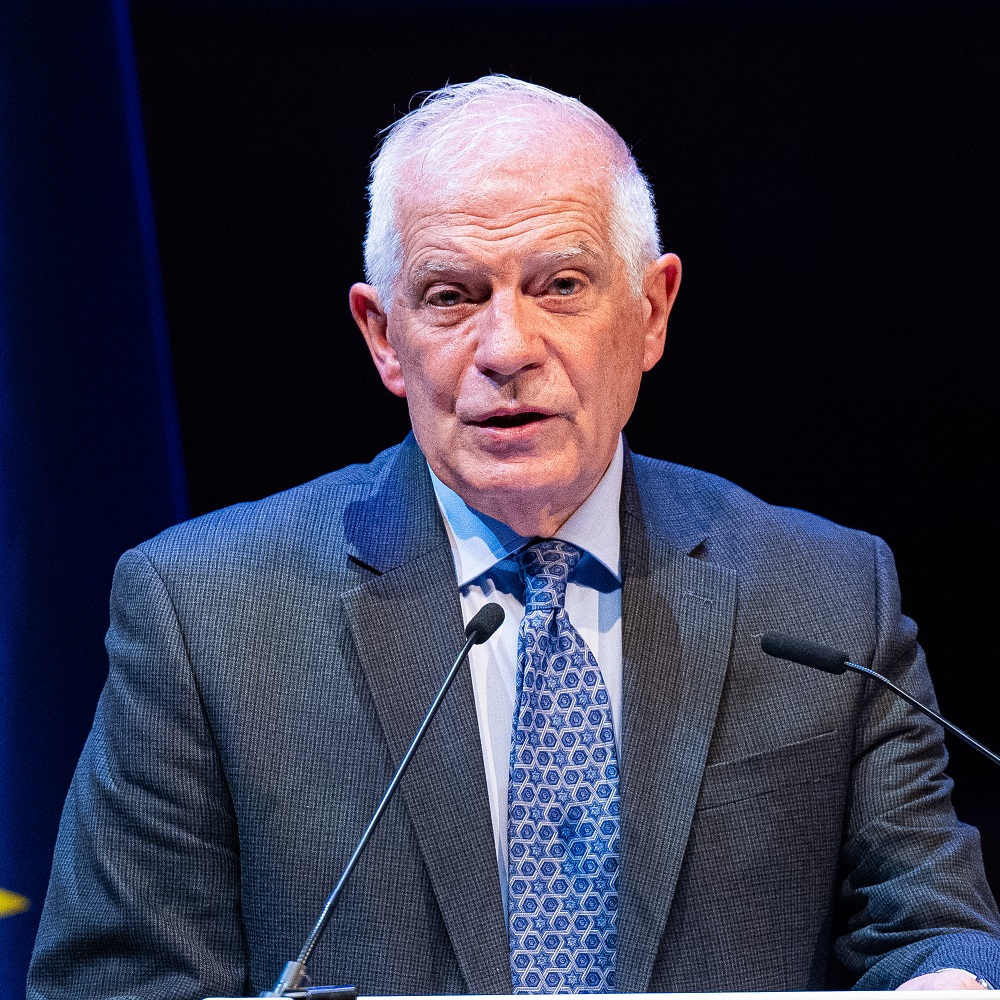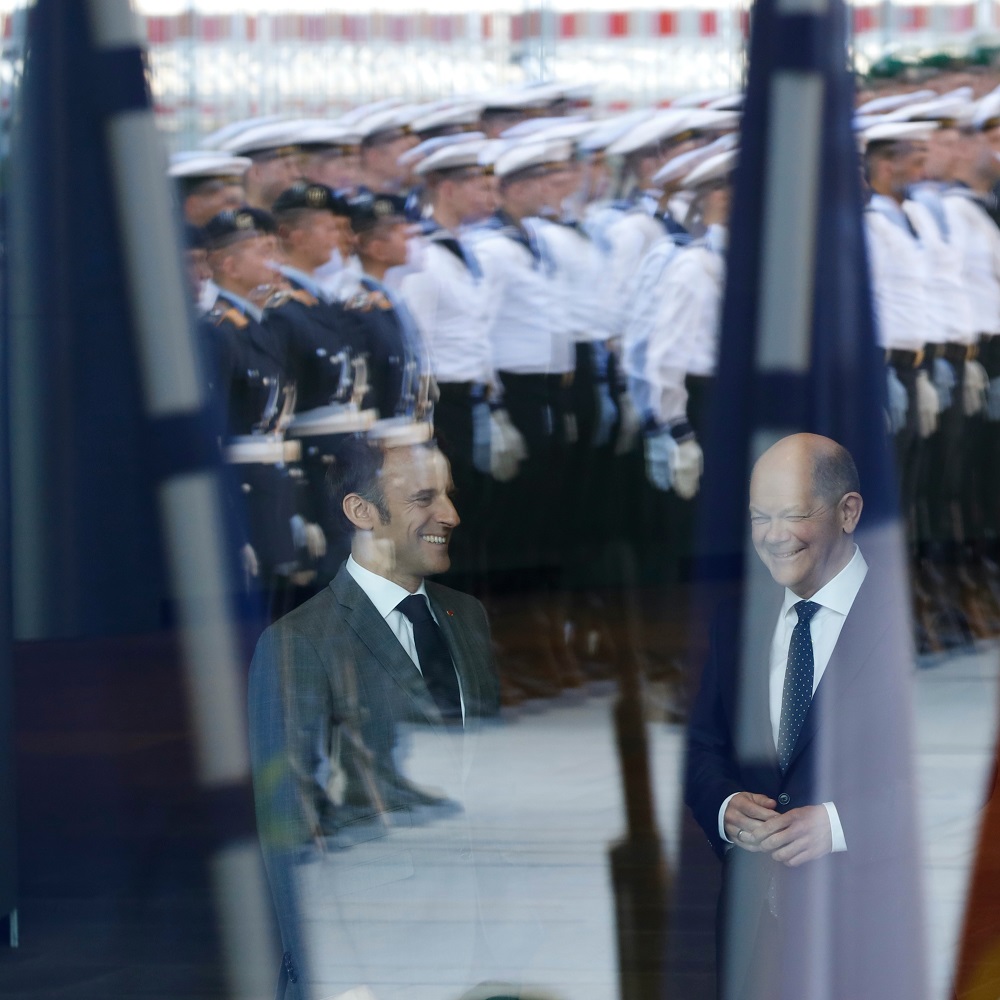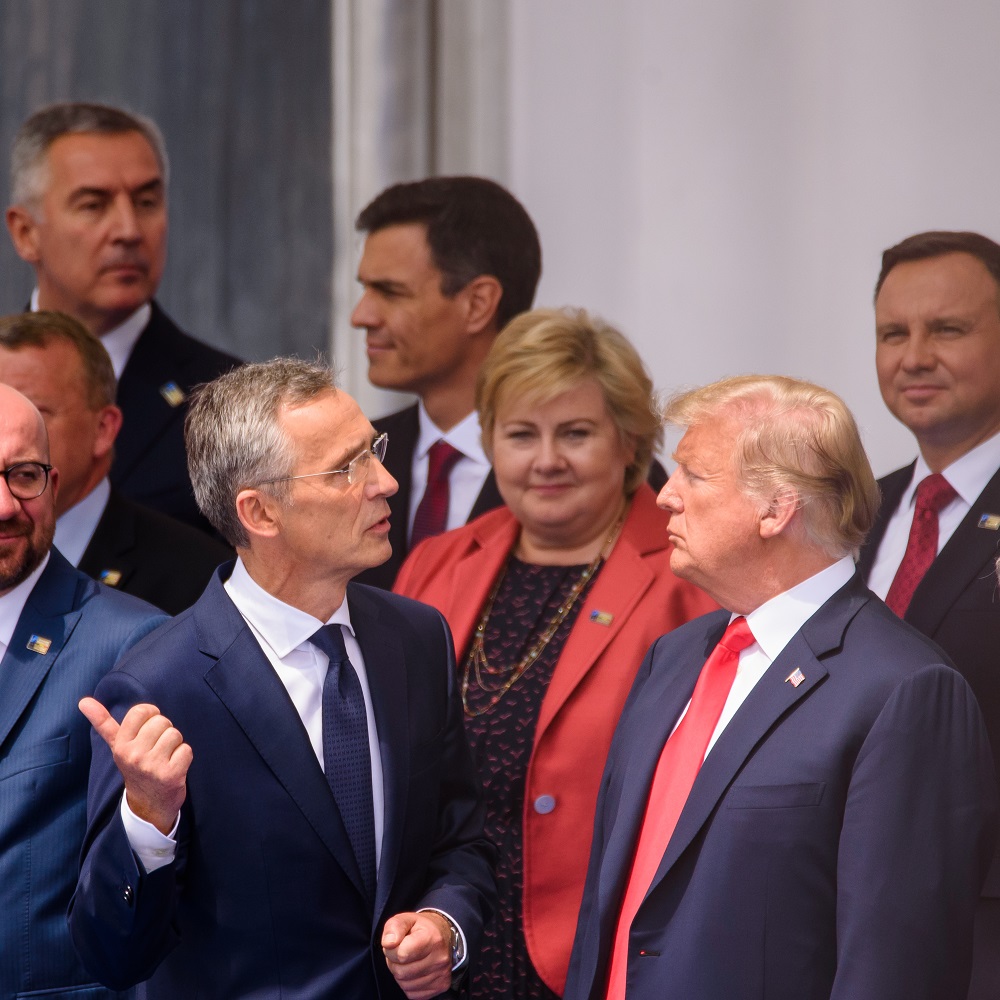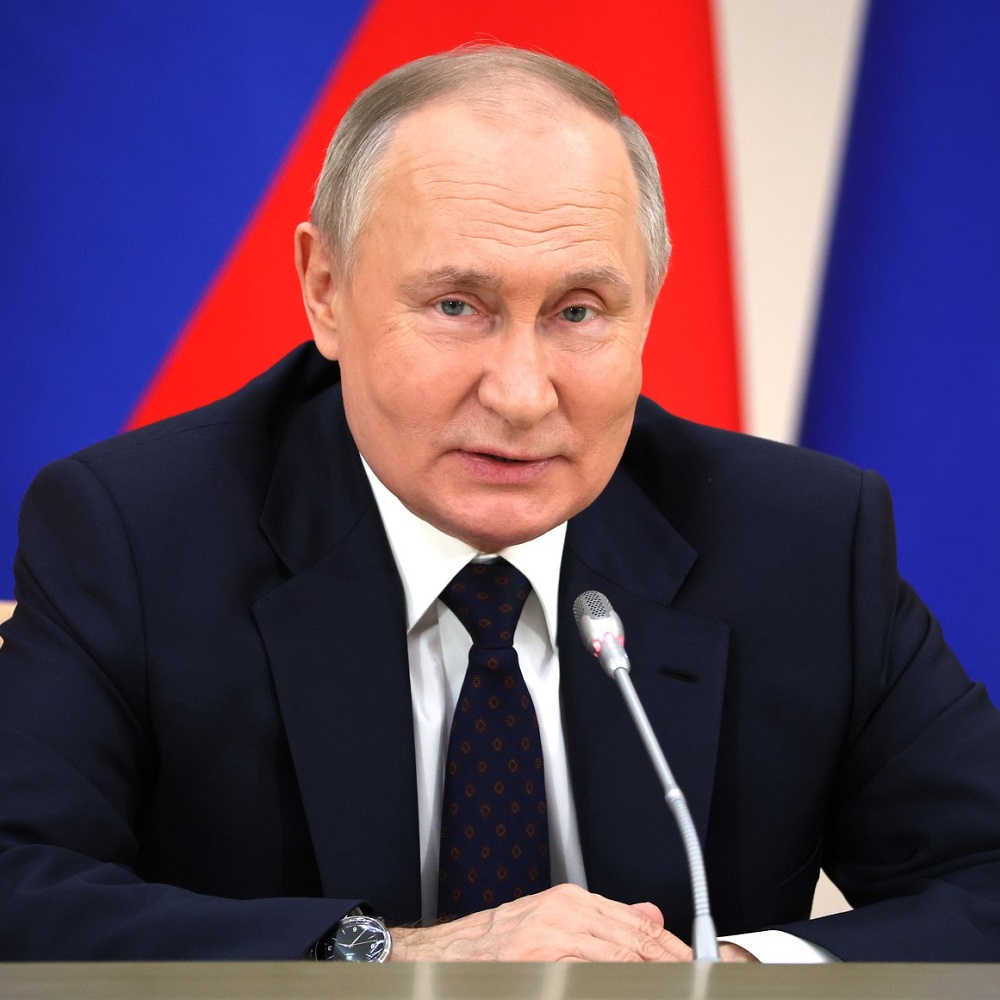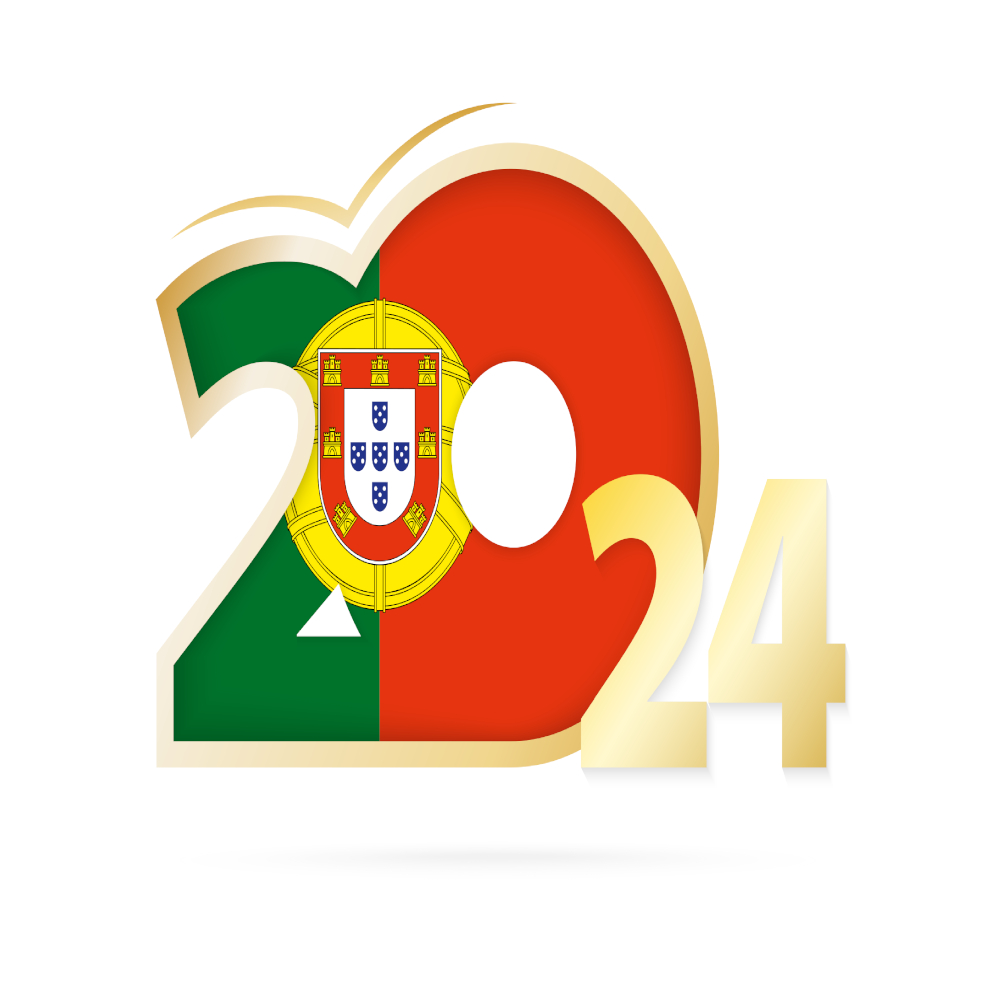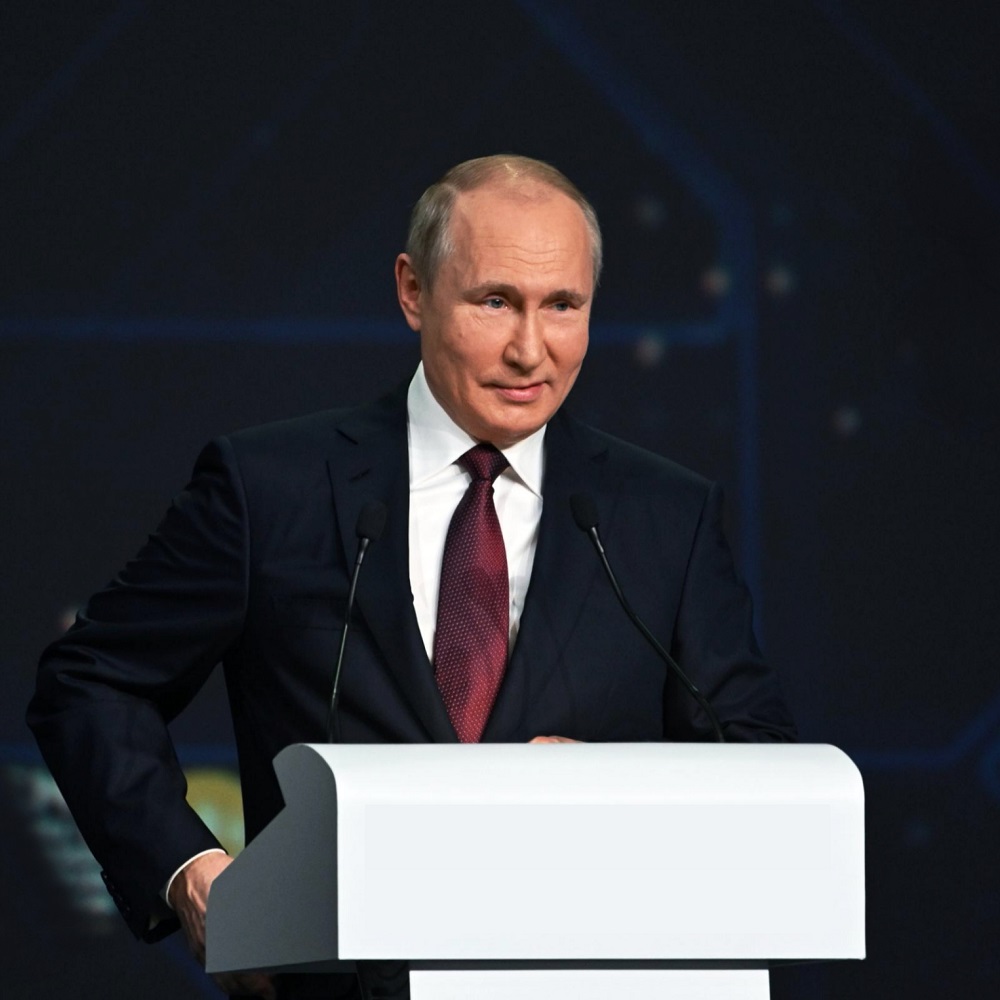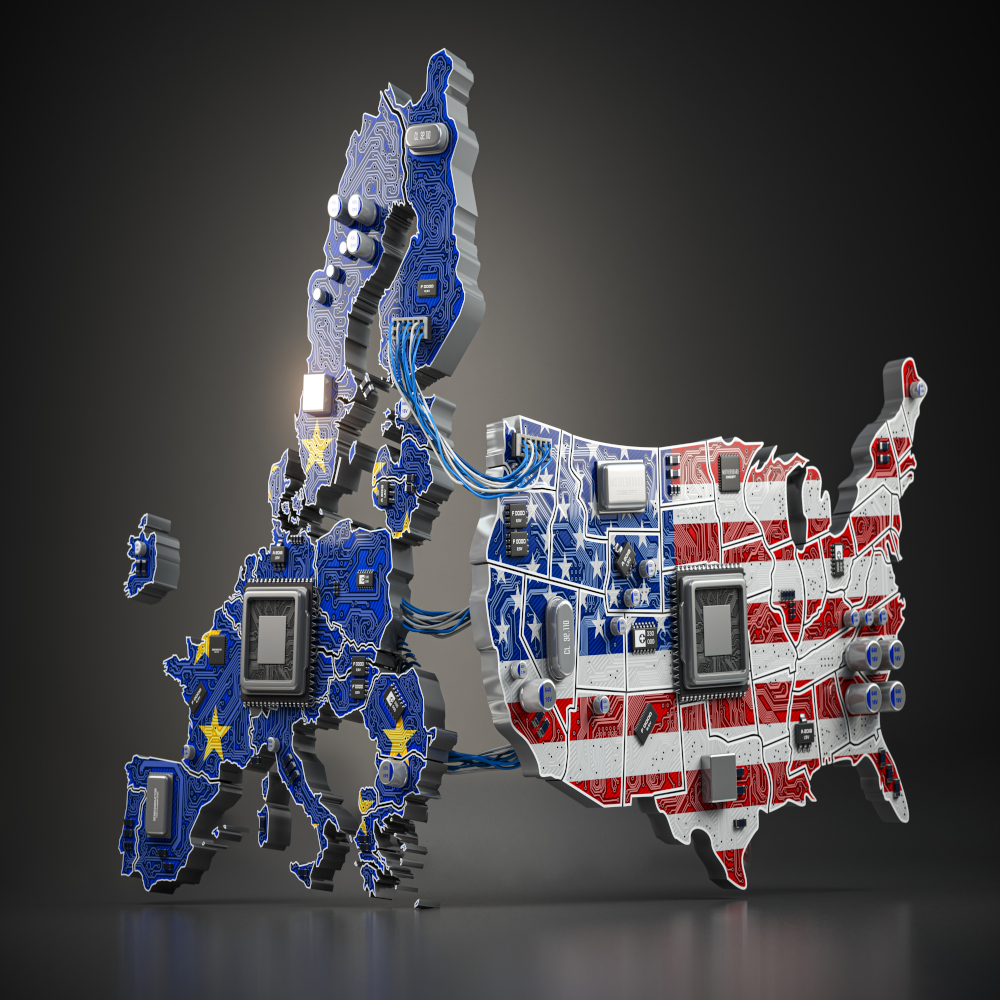
EU and US continue strong trade and technology cooperation at a time of global challenges
by Margrethe Vestager , Valdis Dombrovskis
Today, the EU and the United States held the sixth meeting of the EU-US Trade and Technology Council (TTC) in Leuven, Belgium. The meeting allowed ministers to build on ongoing work and present new deliverables of the TTC after two and a half years of cooperation. The TTC is a key forum for close cooperation on transatlantic trade and technology issues. The Commission was represented by Executive Vice-Presidents Margrethe Vestager and Valdis Dombrovskis, joined by Commissioner Thierry Breton. On the US side, US Secretary of State Antony Blinken, US Secretary of Commerce Gina Raimondo and US Trade Representative Katherine Tai were present. The meeting took place in a challenging geopolitical context, including Russia's illegal war against Ukraine and global economic pressures. In addition, the acceleration of the digital and green transitions opens opportunities for growth and innovation but also requires transatlantic cooperation towards joint approaches. The meeting showed that there is a strong commitment to advance transatlantic leadership on emerging technologies and in the digital environment, facilitate bilateral trade and investment, cooperate on economic security and defend human rights and values. Transatlantic cooperation on artificial intelligence, quantum, 6G, semiconductors and standardisation The EU and US reaffirmed their common commitment to a risk-based approach to artificial intelligence (AI) and support for safe and trustworthy AI technologies. Both partners believe in the potential of AI to help find solutions to global challenges. A short overview document published today on AI for the Public Good identifies milestones on which the EU and US are cooperating in the areas of extreme weather, energy, emergency response and reconstruction. The partners also announced a new Dialogue between the EU AI office and the US Safety Institute on developing tools, methodologies and benchmarks for measuring and evaluating AI models. Since the launch of the TTC in 2021, the EU and US have worked on transparency and risk mitigation to reap the benefits of AI for their citizens and societies and continue to implement the Joint Roadmap for Trustworthy AI and Risk Management. The EU and US have adopted today a common 6G vision setting out a path for leadership on this technology, and have signed an administrative arrangement for research collaboration. This builds on the 6G outlook adopted in May 2023, and the industry roadmap on 6G of December 2023. In the semiconductors area, the EU and the US are extending for three years their two administrative arrangements, under which they have been cooperating fruitfully to identify early-on supply chain disruptions and ensure subsidies transparency. They will commit to cooperating on legacy semiconductors and join forces in research to find alternatives to per- and polyfluoroalkyl substances (PFAS) in chips, including by leveraging AI capacities. On emerging technology standards, the EU and US are releasing a Digital Identity Mapping Report with the aim of identifying use cases for transatlantic interoperability and the cross-border use of digital identities. In 2023, the EU and the US endorsed a common international standard on megawatt charging systems for the recharging of electric heavy-duty vehicles. The partners will continue to work on standards as enablers of the green transition. Boosting digital skills and talent is fundamental for the success of the digital transition. The Talent for Growth Task Force launched in April 2023 with a one-year mandate, has served as a platform for rich exchanges on innovative skills development and actionable solutions to address skills shortages in the technology sector in both the EU and the US. The Task Force presented the outcomes of these discussions in the margins of the TTC. Promoting easier, more sustainable and more secure trade on the transatlantic marketplace Promoting sustainable trade as part of the green transition is a priority for both parties and the TTC remains a key forum for the EU and the US to cooperate on this. Both sides reaffirmed the importance of the Transatlantic Initiative on Sustainable Trade (TIST), which since its inception in 2022 frames the TTC's work in this regard. At today's meeting, ministers took stock of the work taking place under TIST including on conformity assessment, to facilitate trade in goods and technologies that are vital for the green transition. They agreed to publish a Joint Catalogue of Best Practices on Green Public Procurement to help accelerate the deployment of publicly financed sustainability projects, and to advance their cooperation on solar supply chains. The EU and the US have declared their intention to make transatlantic trade easier and to continue growing their unique economic partnership. To this end, both sides have agreed to facilitate digital tools in trade. In particular, they have taken steps to ease digital trade for companies by coordinating and aligning their respective technical standards for e-invoicing systems, which should considerably cut down on time and red tape. This will also reduce paper usage and carbon emissions associated with traditional invoicing methods. Furthermore, both parties reaffirmed the importance of the EU-US Clean Energy Incentives Dialogue as a platform for exchange to avoid zero-sum competition and trade and investment distortions in the clean energy sector. They also welcomed the publication of recommendations for greater transatlantic e-vehicle charging infrastructure compatibility, which complement the previously published Transatlantic Technical Recommendations for Government Funded Implementation of Electric Vehicle Charging Infrastructure. Moreover, the EU and the US hold that sustainable trade is not only about cutting greenhouse gas emissions, but also about ensuring a fair transition for workers and firms up and down the supply chain. This aim is encapsulated by the work of the Trade and Labour Dialogue (TALD), which, building on the discussions during a workshop with social partners organised at the fifth TTC meeting in January 2024 held its third meeting at today's TTC ministerial meeting. In addition, the EU and US have intensively engaged on critical minerals, which are indispensable for a wide set of technologies needed for EU strategic sectors such as the net-zero industry, and the digital, space and defence sectors. The EU and the US are advancing negotiations toward a Critical Minerals Agreement This agreement aims to strengthen EU-US supply chains in critical minerals for electric vehicles batteries and to reinforce the protection of labour and environment in international critical minerals supply chains. The EU and the US also welcomed the launch of the Minerals Security Partnership Forum (more information will be available later here), which they will co-chair, and look forward to a fruitful future cooperation with a wide range of partners around the world. Ministers also discussed partnering on economic security. In this regard, the EU and the US reaffirmed their shared concerns over the challenges posed by economic coercion and non-market practices employed by third countries and resolved to continue their efforts to de-risk and diversify their trade and investment relations. They also recognised the important role that the TTC has consistently played to optimise EU-US work on export controls against Russia and Belarus. They resolved to further align their respective priorities in this regard and to continue work on facilitating secure high-technology trade while maintaining an effective export controls regime. The EU and the US have carried out joint work to identify and promote best practices on foreign investment screening and will continue to exchange information to address threats to security and public order. Both parties also agreed to continue to exchange information on how to respond to the risks posed by outbound investments in certain critical technologies. Defending human rights and values in a changing geopolitical digital environment The EU and the US concur that online platforms should exercise greater responsibility in ensuring a fair, transparent, and accountable digital environment including by addressing gender-based violence and protecting human rights defenders online. The partners have developed a set of joint principles on gender-based violence on online platforms which complement the list of high-level principles on the protection and empowerment of minors and data access for researchers, which are in line with the EU's Digital Services Act. Both partners are determined to support democracies across the world and to defend human rights, free and independent media and combat foreign information manipulation and interference, especially in a year when many elections take place in the world. Following suit, they have published joint Recommended Actions for Online Platforms on Protecting Human Rights Defenders Online. The EU and US committed to facilitating data access from online platforms and published a report on mechanisms for researcher access to such data, which builds upon efforts undertaken by the academic and research community. Moreover, the EU and the US reiterated their commitment to support secure and resilient digital infrastructure and connectivity projects in third countries and announced a joint support package for Tunisia. This adds to the implementation of projects underway in Costa Rica, Jamaica, Kenya, and the Philippines. Next Steps The wide-ranging fruits of the TTC's work since its launch in 2021 attest to the value of this transatlantic policy forum, and principals agreed on the need to continue this work. Therefore, as both sides enter their respective electoral processes, the EU and US will reflect on the lessons learned so far and possible ways forward. In the meantime, the technical work under the TTC will continue. Building on the lessons learnt from our cooperation so far, we intend to use the remainder of 2024 to engage with EU and U.S. stakeholders to gather their views on the future of the TTC. Background The EU and the US launched the EU-US Trade and Technology Council (TTC) at their summit in Brussels on 15 June 2021. It has served as a forum to discuss and coordinate on key trade and technology issues, and to deepen transatlantic cooperation on issues of joint interest. The inaugural ministerial meeting of the TTC took place in Pittsburgh on 29 September 2021. Following this meeting, ten working groups were set up covering issues such as technology standards, AI, semiconductors, export controls and global trade challenges. This was followed by a second meeting in Paris on 16 May 2022, a third meeting in College Park, Maryland, in December 2022, a fourth meeting in Luleå, Sweden, in May 2023 and a fifth meeting in Washington DC in January 2024. The EU and the US remain key geopolitical and trading partners. EU-US bilateral trade is at historical highs, with over €1.6 trillion in 2023 and with bilateral investment stocks topping €5 trillion. Quote(s) “In today’s fast-moving and uncertain world, our partnership with the United States on trade and technology allows us to deal with some of the most crucial challenges of our time. I am proud of the results delivered so far and we will keep working to enhance economic security and build a fair digital environment that reflects our values.” Margrethe Vestager, Executive Vice-President for a Europe Fit for the Digital Age “The TTC has injected new dynamism into transatlantic trade relations. It is the first forum of its kind that has allowed the world’s two largest economies to set new standards and cooperate on current challenges - such as sanctions against Russia - based on shared democratic values. The TTC has made important inroads in terms of bolstering our economic security and enhancing the resilience of supply chains. We have also made valuable progress in jointly forging the green transatlantic marketplace.” Valdis Dombrovskis, Executive Vice-President, and Commissioner for Trade











